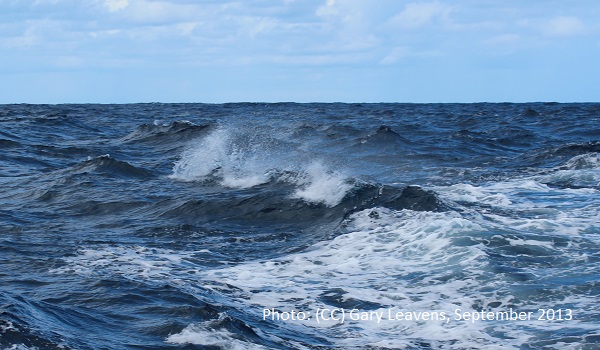A Spanish NGO says 4,404 people lost their lives trying to reach Spain from Africa in 2021. The dramatic rise in deaths is thought to be linked to EU and member states efforts to clampdown on migration via the Mediterranean. The Spanish civil rescue service, Salvamento Marítimo (SM), has returned to tweeting rescue reports after a long hiatus period in which only NGOs and journalists reported on operations. A legal change to work and residency requirement for unaccompanied youths has allowed “hundreds of young people” to map out their future.
NGO Caminando Fronteras says deaths on sea migration routes to Spain in 2021 were double those recorded of 2020. More than 4,400 deaths lives were lost, including 205 children: 91 per cent of these deaths took place on the Atlantic Route. This indicates that between one in six and one in five of people attempting the crossing lose their lives. The International Organization for Migration (IOM), which records death statistics for all maritime routes to Europe, indicates a much more conservative number of 955 dead on the Canary route and another 324 deaths in the Western Mediterranean. Official statistics however struggle to account for the 94 per cent of bodies that are never recovered.
2021 was a year of increased sea migration across all routes to Europe when compared to 2020, a year in which the global pandemic limited mobility. Numbers on the Atlantic route however have remained high for the last two years, with roughly 23,042 arrivals in 2021 and 23,025 in 2020. This represents an increase of roughly 900 per cent when compared to 2019. According to Caminando Fronteras, the steep rise in journeys and deaths since 2019 is a direct result of European efforts to curb migration in the Mediterranean. These include funding Libyan authorities to conduct interceptions at sea and run infamous detention centres. According to Sara Prestianni from EuroMed Rights, attempts to “block off” certain routes – namely the Eastern and Central Med – have only led people fleeing poverty and violence to find seek out other, more risky routes.
SM, the Spanish government’s rescue service, regularly rescues dozens of people in distress at sea off Spain. Previously, the union’s official channels were an important source of information on activity on the Canary route. For several years now however, SM has stopped reporting rescues on its social media, leading journalists and families of the missing to rely heavily on the SM workers’ union, CGT Salvamento, and NGOs for updates. On 10 January, SM broke the long hiatus by tweeting on the rescue of 57 people. The tweet was applauded by migrant rights activists and journalists, and followed by several other rescue tweets, but it is unclear whether this indicates a return to systematic reporting. 56 people were rescued on 30 December and a further 68 on 31 December. On 4 January, Morocco, Spain and the US jointly rescued 103 people from two sinking ships 40 nautical miles from the Moroccan coast. Two bodies were found in the water, and all the survivors were returned to Morocco. On 11 January, 43 people were rescued to the southeast of Gran Canaria. A boat with 67 passengers that left Boujdour in Western Sahara on 30 December was still missing at sea on 13 January.
The Western Mediterranean routes to Spain also remained deadly in 2021. Caminando Fronteras recorded 191 victims on the Algerian route, with 19 shipwrecks; 102 deaths in the Strait of Gibraltar, in 17 accidents; and 95 victims in 10 accidents on the Alboran Sea. On 13 January, 28 people had been lost at sea for four days on the Alboran. Frontex, the EU border and coast guard agency, recorded 17,114 “illegal border crossings” on this route during the first eleven months on 2021. This represents a 6 per cent increase on 2020 and a 24 per cent decrease when compared to 2019. The agency says nearly two-thirds of the people detected on this route are Algerians, and almost another third are Moroccans.
One month after a change to Spanish law aimed at assisting young people on the move, over 4,500 foreign-born youths have applied for residency or work permits. The reforms make it easier for people who arrived as unaccompanied children to begin life in Spain. According to the newspaper El Pais: “Hundreds of young people have already started to map out their future, whether in rural jobs, factories or restaurants”. The law change was a win for NGOs which have long campaigned for legislation to improve living conditions and integration prospects of both children and young people who have “aged out” in Spain. According to government data, aroung 15,000 people will benefit from this reform, of which 8,000 are children and 7,000 are older than 18.
For further information:
- ECRE, Atlantic Route and Spain: Reception Challenges Persist but Calm Management Shows Potential, Canary Route Deadlier Than Ever, Ceuta Accepts Yemeni Asylum Seekers, December 2021
- ECRE, Atlantic Route and Spain: Multifaceted Insecurity Drives Dangerous Journeys, Women Flee Violence, Ceuta Closes Case of Child Pushback Victim, December 2021
Photo: (CC) Gary Leavens, September 2013
This article appeared in the ECRE Weekly Bulletin. You can subscribe to the Weekly Bulletin here.

